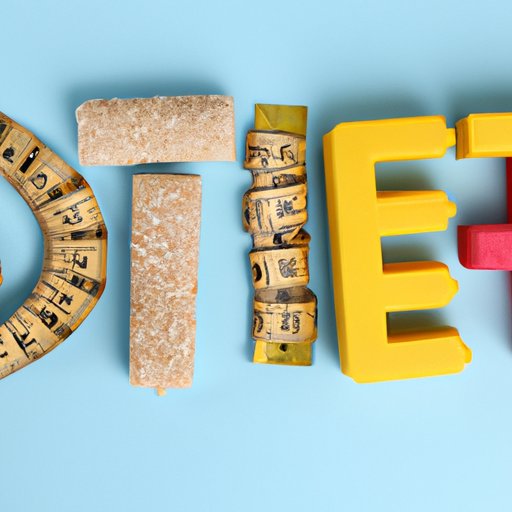
Does Carbs Make You Gain Weight? Exploring the Truth
Carbohydrates, or carbs, have long been vilified as the enemy of weight loss. From low-carb diets to carb-cutting fads, we’ve all heard that slashing high-carb foods from our diets is the key to shedding pounds. But does this popular belief truly hold up under scrutiny?
Myth or Fact: Debunking the Link Between Carbs and Weight Gain
The idea that carbs cause weight gain is a common one, but is it rooted in truth? While there is some evidence to suggest that low-carb diets can be effective for weight loss, the notion that carbs alone are to blame for expanding waistlines is not entirely accurate.
“It’s important to understand that weight gain and weight loss ultimately come down to calories in versus calories out,” says registered dietitian Samantha Cassetty. “Carbs can certainly contribute to calorie consumption, but cutting them out entirely isn’t necessarily the answer.”
The Science of Carbs: Understanding Their Role in Weight Gain
Carbs are one of the three macronutrients that make up our diets, along with protein and fat. They’re our body’s primary source of energy, supplying the glucose needed for our cells to function properly.
When we eat carbs, our bodies break them down into glucose and release insulin, a hormone that helps our cells absorb glucose for energy. However, not all carbs are created equal: refined carbs (such as white bread or sugar) can cause a rapid and aggressive spike in insulin levels, which can lead to overeating and the storage of excess glucose as fat.
That said, there are plenty of healthy carbs that can support overall health and weight management. Whole grains, beans, fruits, and vegetables all contain complex carbs that are rich in fiber, which can help us feel full and regulate blood sugar levels.
Carb-Loading: When It Can Help and When It Hurts
Carb-loading is a technique often used by endurance athletes to maximize glycogen stores (the form in which we store glucose in our muscles and liver) prior to an event. By increasing carb intake for a few days before a race or competition, athletes can potentially improve endurance and performance.
However, carb-loading isn’t necessary or even beneficial for most people. In fact, overeating carbs (or any macronutrient) can lead to weight gain if overall calorie consumption isn’t taken into account.
A Low-Carb Diet: Is It the Key to Shedding Pounds?
Low-carb diets have gained popularity in recent years as a way to jumpstart weight loss. While there is some evidence to suggest that these diets may be effective in the short term, the long-term benefits and potential risks are still up for debate.
“Cutting carbs can be an effective way to lose weight initially,” says Cassetty. “However, it’s important to consider that too-low-carb diets can lead to nutrient deficiencies and other health problems. It’s all about finding a balance that works for you.”
The Carb-Counting Conundrum: How to Balance Carbs and Calories
For those looking to manage their weight while still enjoying carb-rich foods, the key is to focus on moderation and balance. One approach is to calculate your daily carb requirement based on factors such as age, height, and activity level, and aim to stick within that range.
However, it’s important to also consider overall calorie intake. “Even if you’re hitting your carb target, if you’re consuming more calories than you’re burning, you can still gain weight,” warns Cassetty.
Carbs and Blood Sugar: Understanding the Link and Its Effect on Weight
Carbs have a significant impact on blood sugar levels, as we mentioned earlier. When we eat refined carbs or consume too many carbs in general, our pancreas is forced to release more insulin to balance our blood sugar levels. Over time, this can lead to insulin resistance and other metabolic issues, including weight gain.
By choosing carb sources that are high in fiber and digest slowly, we can better control our blood sugar and avoid overeating. Foods such as brown rice, sweet potatoes, quinoa, and barley are all great options.
Carbs and Emotional Eating: How Breaking the Cycle Can Help Control Weight
It’s important to remember that the connection between carbs and weight gain isn’t solely physical – there’s also an emotional component at play. Many of us turn to carb-heavy comfort foods when we’re feeling stressed or anxious, which can quickly add up in terms of calories and lead to weight gain.
“Breaking the cycle of emotional eating takes time and effort, but it’s essential for lasting weight management,” says Cassetty. “Learning to recognize triggers and establishing healthy coping mechanisms can make all the difference.”
Conclusion
So, does eating carbs make you gain weight? The answer is complicated. While there is some truth to the idea that overconsumption of refined carbs or total carb intake (especially in the absence of physical activity) can lead to weight gain, avoiding carbs altogether isn’t the answer.
By focusing on healthy, complex carb sources and balancing overall calorie intake, it’s possible to maintain a healthy weight while still enjoying carbs in moderation. Additionally, addressing emotional eating patterns and incorporating physical activity into one’s routine can also support successful weight management over the long term.




